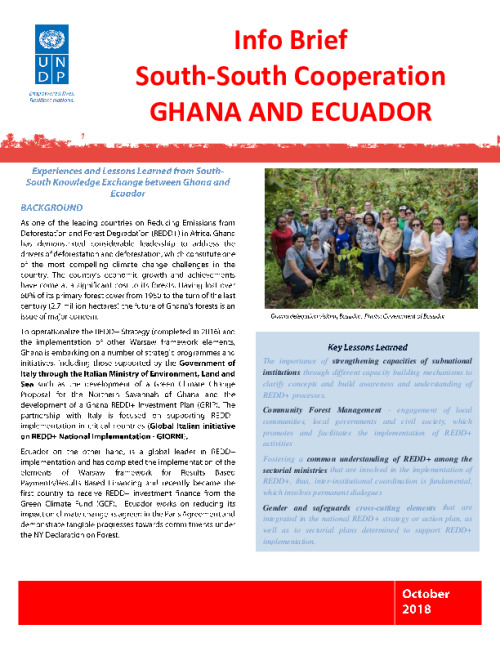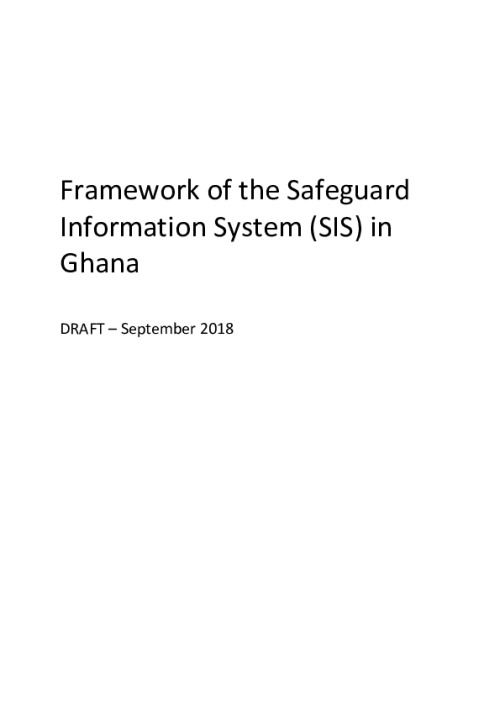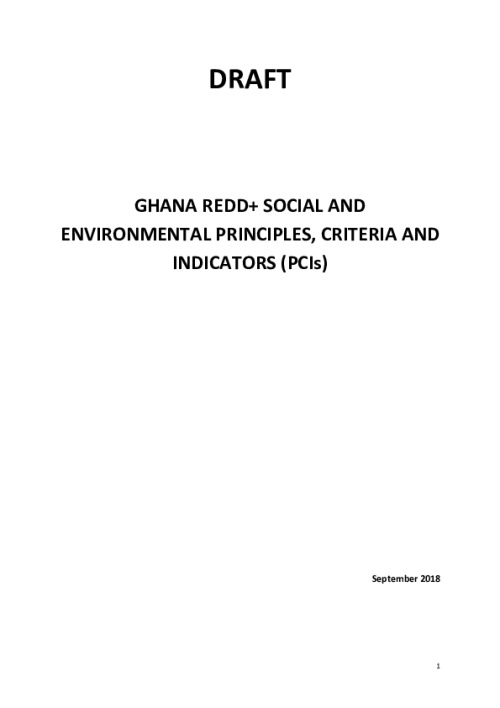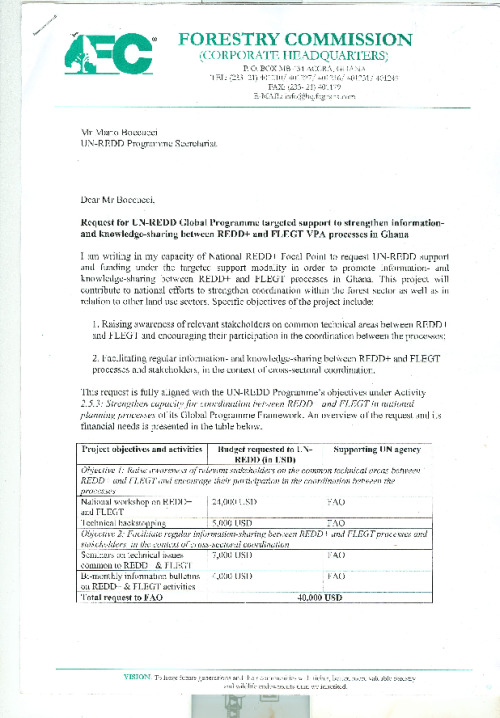Ghana has received support on governance and synergies between REDD+ and FLEGT, as well as on national forest carbon inventories through regional targeted support in West Africa. The country also participated in the regional needs assessment on NFMS in West Africa. (Section 3.49).
National REDD+ Strategy/Action Plan
The country validated findings of four thematic studies on synergies between REDD+ and FLEGT: on regulation of the domestic market, benefit-sharing modalities, legality and safeguards and forest monitoring, as well as an action plan for fostering those synergies, which will help streamline and avoid duplication between efforts under the two initiatives. The Forestry Commission organized information- and knowledge-sharing events to facilitate exchanges and collaboration between REDD+ and FLEGT processes and stakeholders, including National REDD+ Technical Working Group members, the Multi-Stakeholder Implementation Committee (M-SIC) of the FLEGT/VPA, forest managers, policy makers, research and academia and civil society. An action plan and final report were submitted following a national validation workshop in late 2015. (Implementation completed).
In addition, the knowledge exchange programme between Kenya and Ghana, provided an opportunity for Ghana to draw lessons on strategy development from UN-REDD experts who joined the mission to Ghana. Also, while this is not a direct activity by the UN-REDD Programme, the UNDP Global Commodities Programme has supported work on the cocoa landscape, which will build on the overall support of the UN-REDD Programme in the country.



